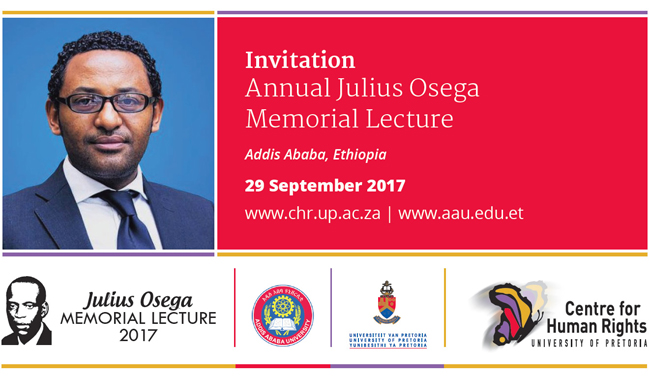The Centre for Human Rights, Faculty of Law, University of Pretoria cordially invites you to a seminar on South Sudan and issues arising from narratives on human rights and armed rebellion.
Date: Wednesday 25 October 2017
Time: 12:30 – 14:00
Venue: Centre for Human Rights Classroom (2-2.1), Faculty of Law, University of Pretoria (Hatfield Campus)
RSVP: PLEASE CLICK HERE TO RSVP ONLINE
RSVP deadline: 24 October 2017
Enquiries: Ms Thuto Hlalele (012 420 3587 / thuto.hlalele@up.ac.za)
Panelists
The following panelists will be speaking at the seminar:
- Dr SP Rankhumise
Department of International Relations and Cooperation (South Africa) - Ms Liezelle Kumalo
Institute for Security Studies - Dr Petrus De Kock
Brand South Africa - Dr Remember Miaimingi
South Sudan Human Rights Observatory
Background to the Seminar
In 2011, the East African country of South Sudan was the world’s newest nation. Its independence was embraced by millions. But by December 2013, ethnic violence and a civil war broke out, causing up to 300,000 casualties and 1.6 million internally displaced persons. President Salva Kiir signed a peace agreement with rebel leader and former Vice-President Riek Machar on 26 August 2015 as the first step to end the civil war. Machar returned to Juba on 26 April 2016 and was sworn in as Vice-President. Soon after his return, in July 2016, violence broke out between government forces and opposition factions, displacing tens of thousands of people. Machar then fled the country; Kiir replaced him as Vice-President with General Taban Deng Gai. While the August 2015 peace deal collapsed and the future of the transitional government remains uncertain, violence continued and each side blamed the other for violating the cease-fire agreement. Multiple acts of violence have prevented farmers from planting or harvesting crops, leading to food shortages nationwide.
The African Union (AU) established a Commission of Inquiry on South Sudan, which produced a report. Similarly the United Nations Human Rights Council established a Commission on Human Rights in South Sudan, which in 2017 called for the establishment of a hybrid court.


